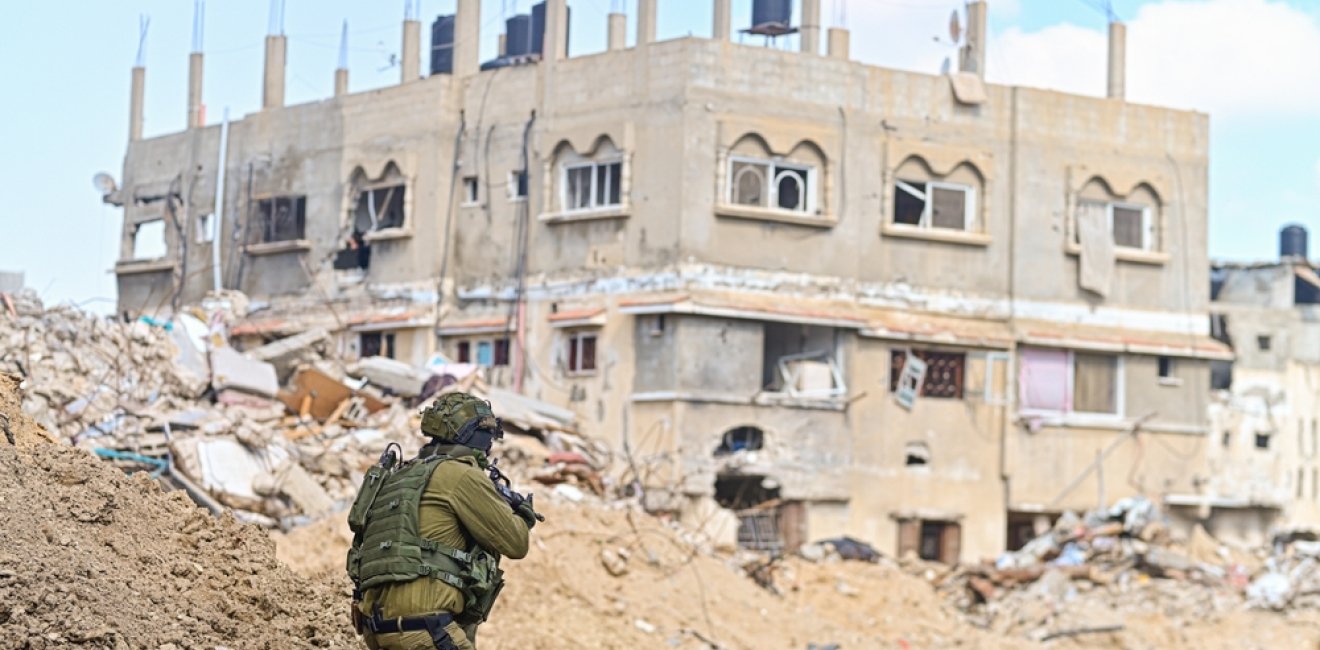The day after the last bomb drops, the surviving Palestinian generation of the war will suffer from the catastrophic and long-term impacts of climate change, compounded by this war.
My role in the Foreign Relations Committee of the Egyptian House of Representatives has provided me with direct access to intelligence regarding the severe humanitarian crisis in Gaza. Yet, it does not require closed-door briefings to comprehend the gravity of the situation: the mounting death toll, cries of newborns, helplessness of their parents, and stomachs growling in hunger. The ill effects of this war are being felt most acutely by the surviving women and children.
After Israel has satisfied its contested military goal of annihilating Hamas, Gaza will be left in an apocalyptic situation—one which talks about the post-Hamas day after, whether through vague hints from Israeli leaders or statements regarding international assistance overlooked. Should the war stop miraculously, what's next for the survivors in Gaza, whether they number in the hundreds or thousands?
The day after the last bomb drops, the surviving Palestinian generation of the war will suffer from the catastrophic and long-term impacts of climate change, compounded by this war.
Gaza’s climate tragedy
Long before the current war, Israeli policies against Palestinians, including the Gaza blockade, had been heavily criticized in scientific, policy, and human rights circles for their environmental damage. For instance, access to safe drinking water in Gaza had significantly diminished due to Israeli attacks on vital infrastructure; 97% of the accessible water failed to meet WHO standards. Additional actions such as the destruction of rainwater harvesting lines and bulldozing of farmland worsened environmental degradation and have increased flood risks in Gaza.
At COP28, which occurred just one month after the onset of the war, Palestinian delegates stressed prioritizing human lives over the pursuit of climate action. This is valid, but both goals should not be seen as mutually exclusive. The clock of the climate Grim Reaper is already ticking.
Reports from Gaza should alert anyone concerned about its future inhabitability. While civilian infrastructure can be rebuilt, the environmental, and subsequent health damage cannot be undone. For instance, debris from bomb fragments has infiltrated the air in Gaza. This can lead to long-term health complications, like an increased risk of cancer and respiratory diseases and exacerbated health conditions for the more than 350,000 Gazans with chronic health conditions.
Moreover, carbon emissions are unparalleled: from the first months of the war estimated that Israeli bombardment, with over 25,000 tons of explosives, generated more than 281,000 tons of CO2 in the first six weeks of the war.
Lastly, rainfall in Gaza is projected to become erratic and decrease by 20% by 2050. The densely populated and resource-poor region is caught in a vicious cycle of conflict and climate change, with the former exacerbating the latter. Those who survive the war may still succumb to the impact of climate change.
The effect on vulnerable groups
Women survivors are facing a slow death. Over a million Palestinian women and girls in Gaza are suffering from severe hunger and even famine. They lack access to food, safe water, and sanitation, which is critical to those who are breastfeeding mothers and those who are pregnant. Those fortunate enough to find food often dropped or smuggled in, are also sleep-displaced, living amidst the rubble of their homes and the mass graves of their male family members. They live under a sky filled with bombs, and their children are haunted by the unforgettable mushroom clouds that have claimed their loved ones.
Climate change magnifies these vulnerabilities, exposing women to heightened risks to their physical and mental well-being and imperiling their livelihoods through agricultural destruction and food insecurity. The agriculture sector, the most vulnerable to climate change, is one of the largest employers of women in Gaza, with 1 of every 6 women working in the sector. The absence of male family heads due to death, arrest, or disappearance because of the war significantly increases the burden on women now heading their families, which now comprise 8.6% of families in Gaza. These impacts will be long-lasting and extend beyond any soon-to-be ceasefire deal. With the destruction of the entire livelihood of the land, these women face an uncertain and challenging future.
With women often responsible for resource procurement, heightened competition for scarce resources intensifies gender inequalities. Moreover, the burden of caregiving and rebuilding falls disproportionately on women, further constraining their economic opportunities. As such, the nexus between solving climate change and establishing peace should be elevated to the forefront of every climate agency's agenda.
A feminist peace agenda
Palestinian women in Gaza deserve a prominent place in discussions about the region's future. Their voices must be heard, and their perspectives valued, whether at high-level political summits or in the UN investigation into the environmental impact of war on Gaza. The day after in Gaza should not be exclusively decided by war hawks in the Washington establishment, far-right extremists in the Knesset, or even Arab leaders. Rather, postwar recovery and long-term sustainability efforts should prioritize women as the primary stakeholders, beneficiaries, and key decision-makers. Failing to include women meaningfully in post-conflict planning perpetuates injustice against the women of Gaza.
My message to leaders, politicians, and administrators from the West that brand their foreign policy as feminist: supporting the continuation of this war and war machinery amounts to a war on both climate and women.
The views represented in this piece are those of the author and do not express the official position of the Wilson Center.







